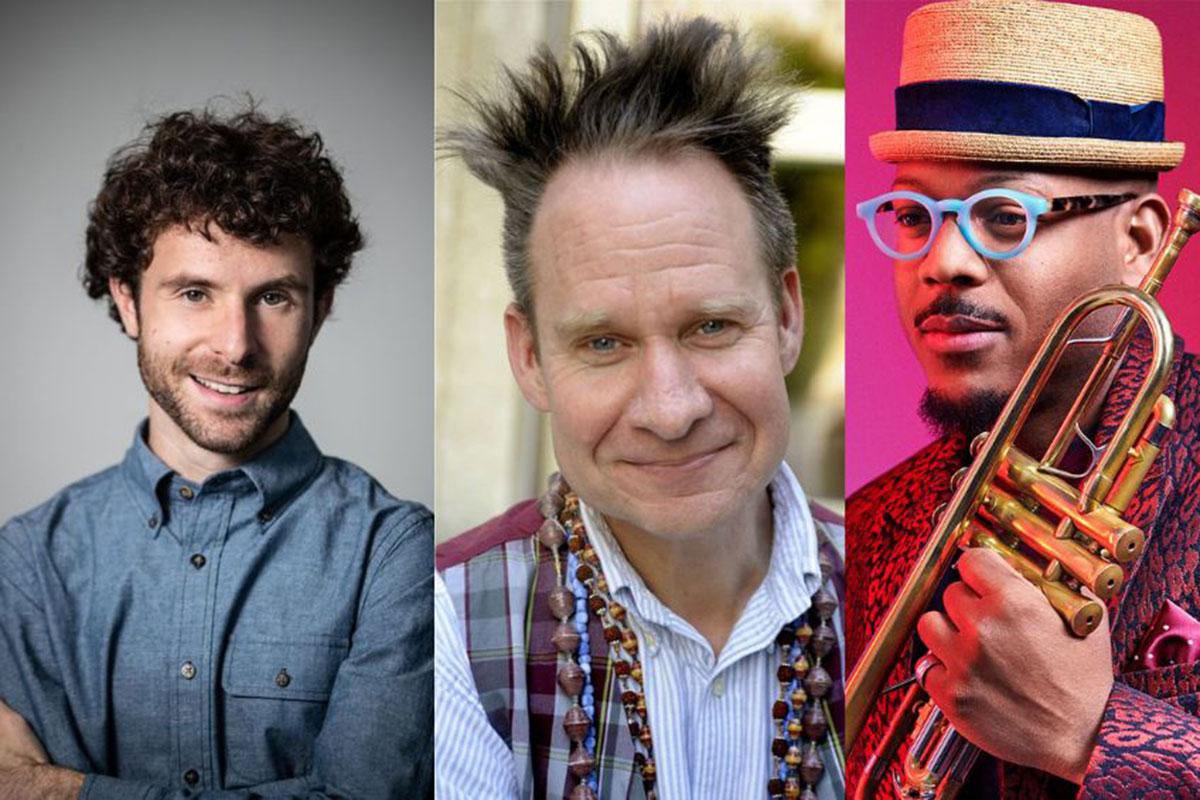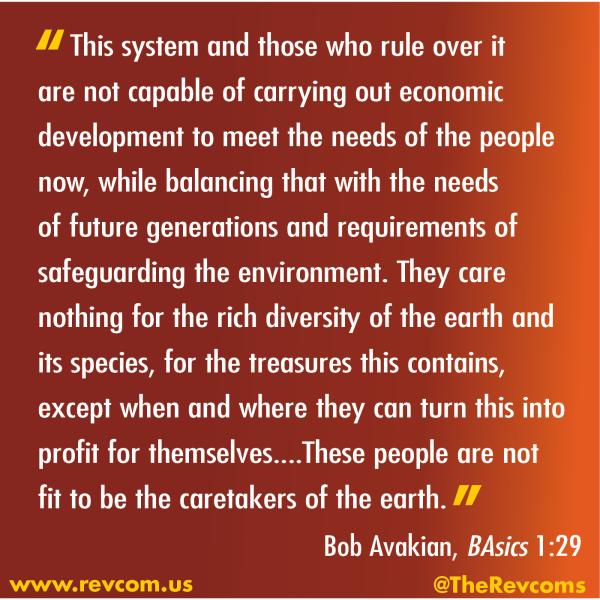Imagine music that captures what the earth sounds like when humans are deeply connected to it, when we are truly listening. Imagine conveying love for our planet and all its life without using a single word. Imagine confronting the horror of a burning planet through discordant, mournful notes performed by an ensemble of musicians from “the very communities most at risk from the effects of climate change.”
DACAMERA presents Etienne Charles Earth Tones
This was the theme of a jazz concert on Friday night, April 19, part of a weekend series by Houston’s DACAMERA Association called Unsilent Spring: Music and Our Changing Planet. As part of this Earth Day series, hundreds of people, including a couple of revcoms, came out for the world premiere of “Earth Tones” by Etienne Charles and his band of musicians from around the globe.
It was a moving and informative evening. Etienne Charles, a prominent musician from Trinidad, approached his project as a musician/researcher, taking inspiration from people he interviewed in regions of rapid climate change. He utilized sounds and rhythms of what he heard and witnessed and transformed them into complex musical compositions. Videos of the interviews were interspersed and sometimes overlapped with the music. The audience saw glimpses of planetary devastation—rising oceans swallowing islands and coastal areas, raging wildfires—and also saw reminders of the interconnected ecosystems that have sustained life and protected species from natural disasters.
The music Charles composed expressed our fears of a dying planet, and our highest aspirations for a world where humanity can be fit caretakers of the earth. The dazzling and spirited music of the ensemble he had assembled also lifted spirits, and exemplified what Bob Avakian describes as our “need to be amazed”—an essential quality of being human.
About 150 packets with a palm card of quote 1:29 from Bob Avakian’s book BAsics, a leaflet calling for revolutionary internationalist May Day, and a passage on the environment from the Constitution for the New Socialist Republic in North America got out to attendees. Before the concert began, Sarah Rothenberg, the artistic director of DACAMERA, moderated a discussion with Etienne Charles, composer Matthew Aucoin, and theater director Peter Sellars. Aucoin and Sellars were creators of the Saturday event called “Music for New Bodies,” also part of the “Unsilent Spring” presentation. All three artists eloquently explained how they conceived of these pieces—their hopes to contribute to understanding the “complex situation” of climate change, and to challenge audiences to confront the problem, resist their “disembodiment” from the earth, and examine themselves and their roles. Etienne Charles listed things that we as humans are—we are musicians, we are scientists, we are thinkers, we are teachers … and as all these things and more, we do have the capacity to solve this problem, he argued.

Composer Matthew Aucoin, theater director Peter Sellars and musician/composer Etienne Charles
These artistic responses and challenges to help people look at the dire planetary emergency are valuable, and speak to the deep desire many people have for a different world. We, the revcoms, need to be in the mix of these expressions, seizing on opportunities and bringing out the hope that we do have, on a scientific basis. We live under a system of capitalism-imperialism that treats the environment as something to be plundered in the pursuit of profit and rivalry to dominate the world, and we need to confront the actual root of the problem—this system of capitalism-imperialism. We need to confront the urgent need, and the possibility to overthrow that system through an actual revolution. Not in the distant future, but in the times in which we live.
On Friday evening, two of us who were in the audience looked for a chance to stand up and extend our own challenge to both the artists and the audience. We wanted to invite and challenge people to lift their sights to revolution, and to learn about the incredible leadership for this revolution in Bob Avakian and the vision of a new society he has forged in the Constitution for the New Socialist Republic in North America. We did not get to speak from the audience during the dialog led by Sarah Rothenberg, and didn’t think we should disrupt the performance. But at the end of the concert, we hurried to the front of the auditorium as the audience was applauding and called out to Etienne Charles that we had a packet of material on revolution. This got his attention, and he reached down to take it.
We don’t know if he’ll read it. We hope he does. But imagine scores of people, in all spheres of culture, coming to understand the problem and solution and infusing that scientific, revolutionary understanding into their creations. Imagine how this can influence the way hundreds and thousands more think and view the world, and how much richer the “challenge” can become. On this Earth Day, let us step up our boldness and strategic confidence and bring to people what no other force will bring—a real way out.
